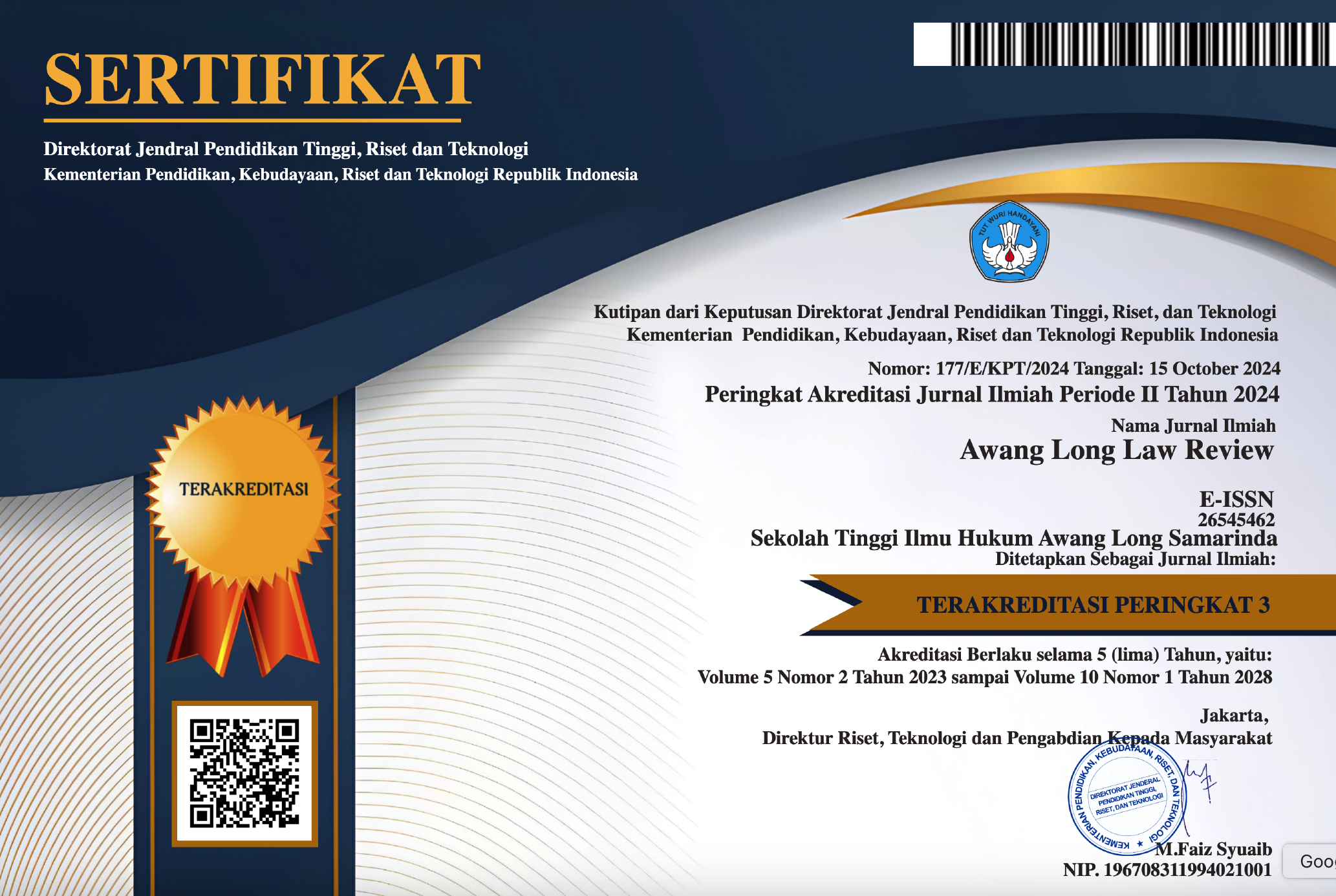LEGAL LEGITIMACY OF INDIGENOUS PEOPLES' RIGHTS IN NATURAL RESOURCES MANAGEMENT: THE CASE IN SERAM BARAT
Abstract
This study purposes to analyze and find out international and national legal documents that have legitimized the rights of indigenous peoples in natural resource management and the reason why the West Seram Regency Government has not formed a regional regulation as a basis for legitimizing the rights of indigenous peoples regarding natural resource management. This type of research is empirical, while still using literature studies based on theories, doctrines and legal norms related to the issues discussed. The nature of the research is explanatory analytical prescriptive by explaining the issues raised based on legal provisions, norms and theories. Then analyzed qualitatively. Based on the research results; The legal legitimacy of indigenous peoples over the management of natural resources as a human right is largely determined by the role of district/city governments which must establish regional regulations. Therefore, the role of the district city government and the district parliament must work together. In fact, the recognition of legal legitimacy for the presence of customary law communities is still ambiguous. On the one hand, recognition of the identity of the indigenous peoples has been carried out, but on the other hand, the use of exclusion under other provisions. Even if it has been fulfilled procedurally and substantively, a legal legitimacy is not necessarily a guarantee that customary law community units are recognized. Considering the more dominant interests of the State over natural resources in the midst of a free market economy and the strengthening of the accumulation of capital power.
Downloads
Copyright (c) 2021 Awang Long School of Law

This work is licensed under a Creative Commons Attribution-ShareAlike 4.0 International License.







